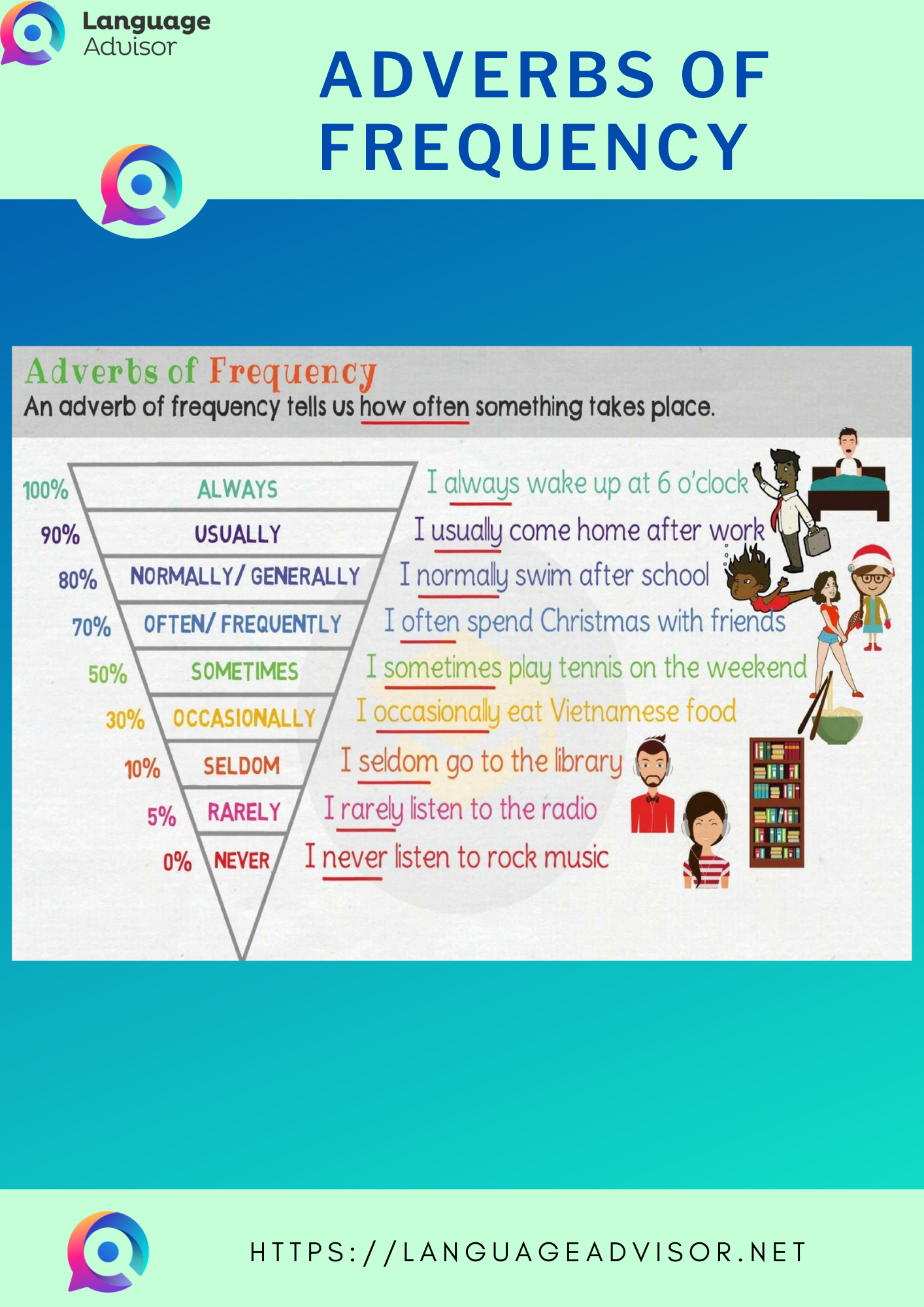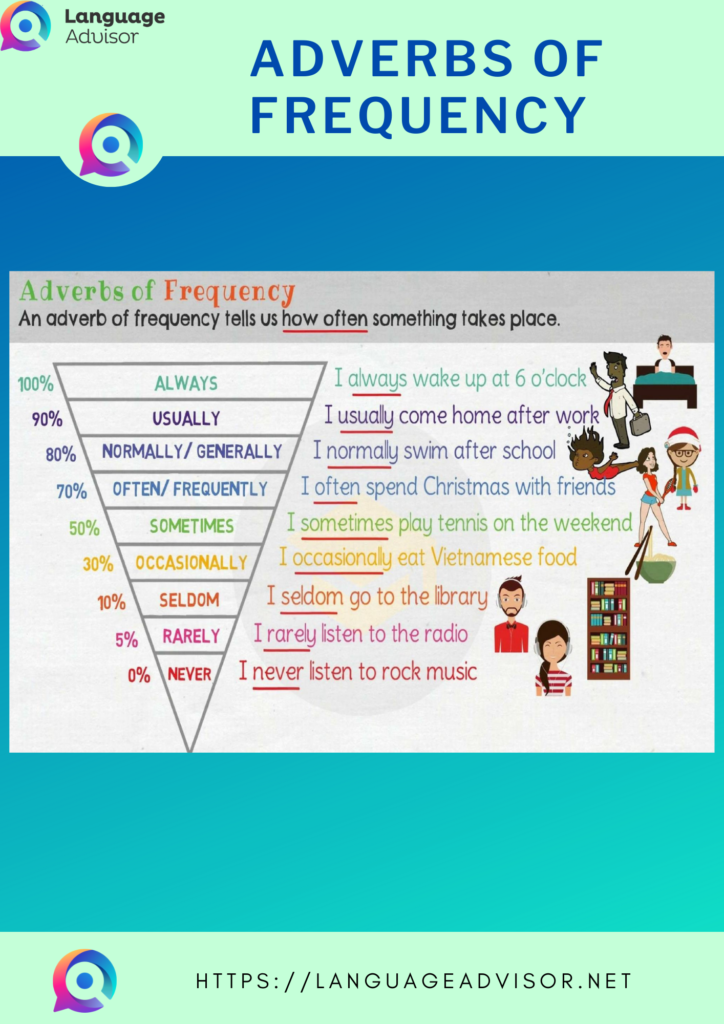
English Adverbs of Frequency


English Adverbs of Frequency, Frequency Adverbs and adverbs of time. English grammar with exercises. English ESL Worksheets for adverbs of frequency. Free eBook and Free printable PDF
Adverbs of frequency.

An adverb of frequency describes how often an action happens. There are six main adverbs of frequency that we use in English: always, usually ( or normally), often, sometimes, rarely, and never. They differ in the level of frequency. The most common position for adverbs of frequency is between the subject and the verb. For example: Jack always goes out on Saturday evenings . With sentences using the verb ‘to be’, the adverb of frequency comes after the verb. For example: It’s often difficult to find a place to park. But it’s possible to put the adverbs ‘sometimes’ and ‘usually’ at the beginning of a sentence: Sometimes she does her homework with friends. Usually they study on their own. With a modal verb in the sentence, we put the adverb of frequency after it and before the main verb. For example: You must always try your best. We can usually find a seat on our train. They should never be rude to customers. The same rule applies for an auxiliary verb – the adverb of frequency goes between the auxiliary verb and the main verb. For example: I have never visited Turkey. He’ s always taking things from my desk. It’s really annoying.
Adverbs of Frequency: exercises
ADVERBS OF FREQUENCY EXERCISE 1. Re-write the following sentences putting the adverbs of frequency in the right place. e.g. I do my homework. (after dinner usually) I usually do my homework after dinner. She goes out with friends. (in the evening – often) Mr. G. has a beer and some chips. (at lunch time – usually) We have a picnic at the beach. (in the summer – often) I have snacks. (before dinner – never) They have lunch. (at one o’clock –always) British students go to school. (on Saturdays – never) 7. I eat meat. (sometimes) 8. They go to the disco. (seldom) 9. She likes playing tennis. She plays it. (always) 10. He listens to the radio. (often) FREQUENCY ADVERBS Frequency adverbs are used to demonstrate how many times a person or an object does something. EXERCISE 1. E.g. Ben goes to the cinema twice a month . Angela always washes the dishes. Use the table to answer the following questions.
- How often does Henry watch TV?
- How often does Jennifer travel to London?
- How often does Henry eat pizza?
- How often does Jennifer swim?
EXERCISE 2 .
- How often does Frank study?
- How often does Jessica play football?
- How often does Frank read?
- How often does Jessica visit a museum?
ADVERBS OF TIME AND FREQUENCY EXERCISE 1. Fill in the gaps with one of the following:
e.g. Have you ever been to China?
- I haven’t booked my tickets ______. Do you think I’m ______ in time?
- I like it here. That’s why I come here quite _______.
- Do you ________ wear your wedding ring?
- I have _______ seen anything like that!
- ____________ I prefer to go somewhere else.
- My brother bought the T-shirt ________ before the shop closed.
- I don’t ____________ like action films, but I quite like this one.
- It’s only five o’clock, but she’s ___________ here.
EXERCISE 2. Put the adverbs in the right places. e.g. You are right. (always) à You are always right.
- My father has been to Iceland. (never)
- I come here after the football match. (always)
- Have you posted the letter? (yet)
- I prefer to go to work on foot. (sometimes)
- Is your husband working for the furniture firm? (still)
- His children have been vaccinated. (already)
- You don’t get such an opportunity. (often)
- I come in the evenings. (usually)

All downloads are in PDF format
Adverbs of frequency exercises: ebook and pdf, browse the ebook online or download the pdf for free, subscribe to language advisor for monthly updates, related posts:.

Leave a Reply Cancel reply
Your email address will not be published. Required fields are marked *
Save my name, email, and website in this browser for the next time I comment.
Yes, add me to your mailing list

IMAGES
VIDEO